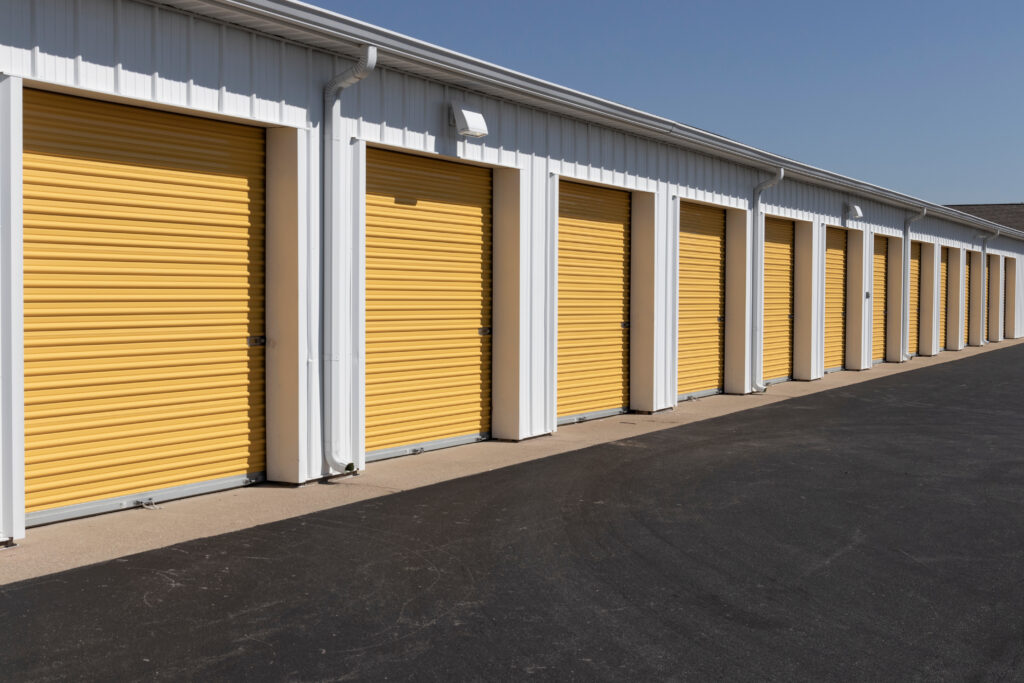
Ideas to Grow Your Landscaping Business in the Off-Season
Ideas to Grow Your Landscaping Business in the Off-Season For Landscape Contractors, if the sun is shining, you’re busy working! Spring and summer are likely
Self-storage facilities are a great convenience for those who need to store excess belongings, but on the other hand, claims from tenants are not so convenient. There are many different scenarios where an individual could potentially be injured while at your facility, for instance tripping while carrying in boxes, a light fixture falling from above, or an ice-covered entrance resulting in a fall. Each of these scenarios could result in a claim, but general liability insurance can help to provide your company with protection from these claims, both from personal injury and/or property damage caused by the alleged negligence of your company and/or any of your employees.

No matter if you rent or own the buildings that you run your self-storage business in, having commercial property insurance can help to protect your equipment, building, and even some of your inventory. It is important to note that commercial property insurance plans vary from policy to policy, and additional coverages can be added. To best understand what coverages may be a good fit for your business, reach out to your local insurance agent who is familiar with commercial property insurance.
Tools and equipment insurance can help protect the equipment that both you and your tenants use while at your facility. Equipment like dollies, roll up doors, security systems, chains and locks, and industrial elevators are some of the equipment that may qualify to be covered if they are subject to theft, vandalism, loss, and in some cases damage.

Some self-storage facilities not only offer the space and equipment needed to store a tenant’s belongings, but they may even offer rental vehicles to transport belongings from the tenant’s residence to the facility. If you offer rental vehicles as a tool for tenants, it is important to acquire a commercial auto policy. A commercial auto policy covers your business if a vehicle is damaged or broken into. Commercial auto policies typically have higher coverage limits than personal policies. If you already have a commercial auto policy in place, reviewing it with a local agent to see if it appropriately covers your business is a smart move. It should also be noted that state regulations will likely determine any minimum coverage limits your business may need.
As a business you lean heavily on your employees to keep things moving forward and running smoothly, but what if one of your workers were to get injured? Each employee is a valuable asset, and even well-trained and cautious employees can succumb to injuries. Workers’ Compensation insurance can help protect your employees from accidents caused by job duties. Depending on what state you live in, if you have employees, you may be required to have Workers’ Compensation.
Loss of income insurance can help protect your business and the potential income that it normally would earn if your business were interrupted. For example, if your business is forced to shut down suddenly due to a natural disaster, fire, new regulations, or expropriation, you could qualify for reimbursement.
To see what coverages your self-storage business should consider and to compare rates, connect with your local office.
___________________________________________________________________
This article is for general informational purposes only and is not to be relied upon or used for any particular purpose. Cross Insurance shall not be held responsible in any way for, and specifically disclaims any liability arising out of or in any way connected to, reliance on or use of any of the information contained in this article. The information contained or referenced in this article is not intended to constitute and should not be considered legal, insurance, accounting or other professional advice, nor shall it serve as a substitute for the recipient obtaining such advice. The views expressed in this article are that of its author and do not necessarily represent the views of Cross Financial Corp. and its subsidiaries and affiliates (“Cross Insurance”) or Cross Insurance’s management or shareholders.

Ideas to Grow Your Landscaping Business in the Off-Season For Landscape Contractors, if the sun is shining, you’re busy working! Spring and summer are likely

When Should I Begin Thinking About Medicare? Disclaimer: This is an advertisement and solicitation. The Medicare eligibility age is typically age 65, however, you may

Starting a Business in Retirement You’ve retired from your career, but is it time for an encore? Maybe you’ve been thinking about a dream business